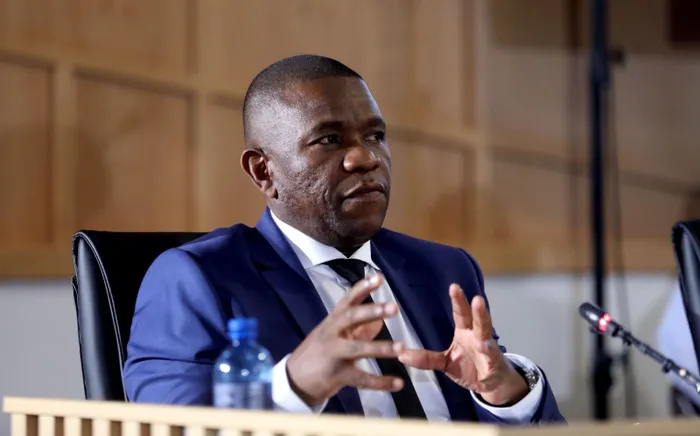
The parliamentary inquiry into police corruption and interference got underway on Tuesday with testimony from KwaZulu-Natal SAPS commissioner, Lieutenant-General Nhlanhla Mkhwanazi.
Image: File: Oupa Mokoena / Independent Newspapers
After a lengthy delay caused by concerns raised by some Members of Parliament, the parliamentary inquiry to investigate allegations made by KwaZulu-Natal provincial police commissioner Lieutenant General Nhlanhla Mkhwanazi, got underway late on Tuesday afternoon.
A supplementary statement provided by Mkhwanazi, the first witness to testify before Ad Hoc Committee, was a major bone of contention for most of the day with EFF leader Julius Malema noting that the statement provided had been prepared for the Madlanga Commission.
The parliamentary inquiry is separate to the Madlanga Commission of Inquiry that is also investigating the allegations brought forward by Mkhwanazi and others.
In reference to the supplementary statement, Malema said they could not use material used by the commission established by the executive.
“It is wrong. It is unconstitutional. We have got to do things properly,” he said.
The matter was dealt with after engagements between chief evidence leader Norman Arendse and Mkhwanazi.
Asked for his response to the suggestion that the Political Killings Task Team (PKTT) was a political initiative and that the decision to disband it was therefore a lawful political decision, Mkhwanazi said such an argument “won't stand”.
“I will say they are wrong because a Minister of Police is not a member of a political party. The Minister of Police is an executive member that is appointed in terms of the law of the Republic (and) is a cabinet member responsible for policing,” he said.
“I don't think the legislature cares as to which political party the member belongs to. To say it was a political decision, what if the minister is not a politician. I don't think that argument will stand,” Mkhwanazi said.
Mkhwanazi explained that the PKTT was formed after President Cyril Ramaphosa visited the house of an ANC member Musawenkosi Mchunu, who was killed in Pietermaritzburg in May 2018.
He said Ramaphosa had announced that he would establish an inter-ministerial committee (IMC) to come up with solutions to mitigate the incidents of murders of politicians in KwaZulu-Natal.
Mkhwanazi said the IMC gave a directive to the SAPS management to develop a plan with coordinated efforts to investigate political killings.
The plan was developed and approved by the national police commissioner and a presentation was made to the IMC, which endorsed it and was happy with it
He said the PKTT would give updates on their work to the IMC, which in turn would brief the media on the interventions they were making.
‘That is how it has been working until towards the end of 2023. Thereafter after the IMC has not sat.”
The IMC, Mkhwanazi said, has not convened since after the 2024 national and general elections.
Mkhwanazi also said the PKTT plan that was given to the IMC was developed by the team, including him as then acting provincial commissioner and national deputy commissioners at the time.
“The national (police) commissioner approved the plan, developed by group of senior officials that were involved.”
Mkhwanazi said the PKTT was accountable to the national commissioner, who accounted to the IMC.
He disagreed that the PKTT was a political initiative implemented by the national commissioner.
“It was an executive authority decision executed by the heads of departments within the security cluster, which included the national commissioner,” Mkhwanazi said.